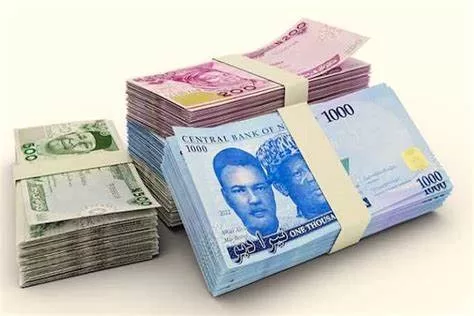
WORTHLESS CURRENCY: ₦100 IN 1960 NOW WORTH ₦1.1 MILLION IN 2025
The Nigerian naira has lost nearly all its purchasing power over the last 65 years, with N100 in 1960 now worth N1.1 million in real terms by early 2025, according to data compiled by World Data.
The dramatic erosion, fueled by persistent inflation, currency devaluations, and economic mismanagement, underscores the chronic weakness of Nigeria’s macroeconomic fundamentals.
World Data, which aggregates statistics from organizations such as the World Bank Open Data, World Data Lab, and the World Data System under the International Science Council, traced the naira’s decline through decades of price increases and policy turbulence.
“While N100 remains nominally unchanged, what has changed drastically is its purchasing power,” the platform explained. “As inflation rises, the quantity of goods and services that money can buy falls. That’s the essence of what we see in Nigeria today.”
The example is staggering: N100 in 1960 could buy 20 bags of rice. By 1973, those same bags cost N539,000, and in 2025, N100 can barely buy two sachets of pure water. The cumulative inflation over the 64-year period reached an astronomical 1.11 million percent.
That means something priced at N100 in 1960 now costs over N1.1 million today.
Most severe drop in 2024
The most significant drop in purchasing power occurred in 2024, when the naira lost 19.81 percent of its value. That year’s inflation rate was 32.5 percent, among the highest since the country gained independence. From 1960 to 2024, the average annual inflation rate stood at 16.5 percent, though spikes in certain decades pushed it much higher.
Illustrating the collapse further, World Data noted that in 1980, N189,000 could purchase half a ton of maize, and by 1984, N107,000 bought just 500 cups of garri. In 2000, N1,100 fetched only 20 sticks of cigarettes—another reflection of inflation’s corrosive effect.
Economic experts blame policy failures
Economist and CEO of CFG Advisory, Tilewa Adebajo, blamed the long-term currency decline on inconsistent and poorly executed government reforms. Speaking with the Nigerian Tribune, he highlighted the dire impact of macroeconomic instability.
“Nigeria’s GDP is currently around $200 billion, making it the fourth-largest economy in Africa after Egypt, South Africa, and Algeria,” Adebajo said. “But due to low productivity, devaluation, and stagflation, the country has lost over $300 billion in economic value.”
Adebajo criticised the federal government’s 18-month economic reform program, saying it has yielded mixed results due to execution flaws. The naira’s collapse from N450 to over N1,700 per US dollar was among the most visible outcomes. Combined with the removal of fuel subsidies, these changes triggered inflation, higher interest rates, and plummeting purchasing power.
Call for structural reforms
To reverse the economic downturn, Adebajo proposed a multi-pronged approach: reduce the national debt, restore Nigeria’s credit rating, and implement structural reforms to improve productivity and attract investment.
He also urged the government to leverage its oil assets by selling joint venture stakes—potentially raising $30 to $50 billion—and to boost oil production to the levels seen in 2009 and 2014, when investment inflows peaked at $22 billion.
“The government must align monetary, fiscal, trade, and investment policies to steer the economy out of this quagmire. Anything short of this will perpetuate Nigeria’s economic challenges,” Adebajo warned.
Government efforts to stabilise currency
In a February 2025 interview with Channels Television, Bismarck Rewane, CEO of Financial Derivatives Company, said the federal government has spent approximately $8 billion—nearly N12 trillion at current rates—to stabilize the naira. These interventions, according to him, included defending the currency in forex markets and raising funds via bond issuances.
“We’ve borrowed $4 billion in bond issues,” Rewane revealed. “Altogether, almost $8 billion has been spent to maintain the naira at current levels.”
Rewane, who also sits on the board of the Nigerian Economic Summit Group, noted that the government’s interventions, though costly, had temporarily stabilized the exchange rate.
As of early June 2025, the naira traded at around N1,505 to the US dollar across both parallel and official markets—a significant improvement from early 2024, when rates approached N1,900.
However, he cautioned Nigerians not to be swayed by the Central Bank of Nigeria’s (CBN) recent decision to retain interest rates at 27.5%, emphasizing that deeper reforms were needed.
Naira’s journey
The naira was introduced on January 1, 1973, replacing the Nigerian pound at a 1:1 parity with the British currency. Since then, successive economic policies, fluctuating oil prices, and external shocks have led to a near-total collapse in value.
The turning point came in June 2023, when President Bola Tinubu’s administration adopted a floating exchange rate regime. The naira depreciated sharply, with the government arguing that the decision was necessary to avert total economic collapse.
The CBN subsequently ended multiple exchange rate windows, consolidating forex transactions under the Investors and Exporters (I&E) window. By late 2023, the naira had fallen to N1,200 per dollar. It plunged further in early 2024, reaching nearly N1,900 before rebounding in 2025 with massive government intervention.
Conclusion
From being able to purchase 20 bags of rice in 1960 to barely affording two sachets of water in 2025, the naira’s purchasing power has eroded to almost nothing. Experts and citizens alike are calling for bold, coordinated reforms to rescue Africa’s most populous nation from prolonged economic stagnation. Without such action, the naira’s descent may continue—and with it, the living standards of millions.
 Premium News
Premium News